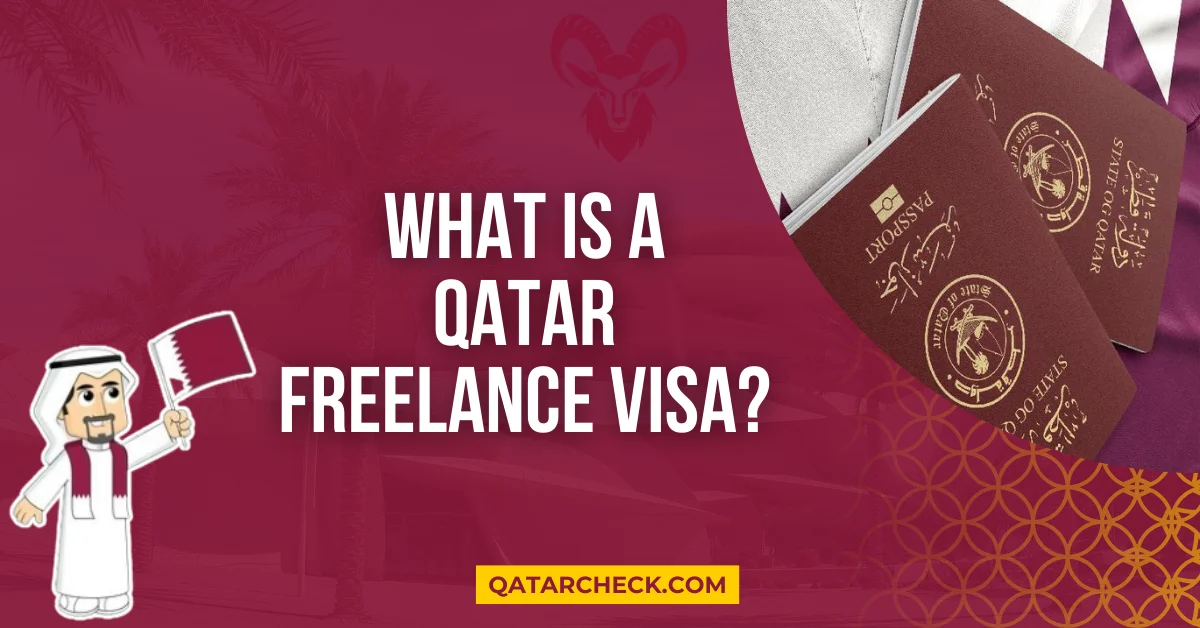Qatar has become a hub for professionals worldwide, offering vast opportunities in a thriving economy. But how can freelancers work legally in Qatar? Is a Qatar freelance visa a legitimate option?
In this guide, we’ll break down what the Qatar freelance visa is, its legal implications, how it works, and whether it’s right for you.
Is the Qatar Freelance Visa Legal? (Quick Answer)
The Qatar Freelance Visa operates in a legal gray area. It requires sponsorship but doesn’t align with Qatar’s strict labor laws mandating employment contracts. Freelancers using this visa risk penalties if regulations are violated. Verify its legitimacy and compliance before pursuing to avoid legal issues in Qatar.
What is a Qatar Freelance Visa? Legal or Illegal
A Qatar freelance visa allows individuals to work independently without traditional employment contracts. However, it operates in a legal gray area. While Qatar mandates employment visas tied to sponsors, freelance visas are unofficial arrangements, making them risky yet attractive for independent workers.
Who Qualifies for a Qatar Freelance Visa?
Eligibility for a freelance visa in Qatar requires meeting specific criteria. Here’s what you need:
- Specialized Skills: Fields like IT, graphic design, and consulting are in high demand.
- Local Sponsorship: A Qatar-based sponsor is necessary to facilitate your visa.
- Work Experience: At least two years of relevant experience improves your chances.
- Clear Record: A clean criminal record is mandatory for approval.
Steps to Obtain a Freelance Visa in Qatar
Freelancers looking to obtain a visa must follow these steps carefully:
1. Find a Sponsor
- Connect with Qatar-based sponsors or companies willing to act as your visa sponsor.
- Vet sponsors carefully to avoid exploitation.
2. Gather Required Documents
- Passport copies
- Experience certificates
- Education certificates
- Criminal clearance records
- A detailed business plan outlining your freelance work.
3. Negotiate Fees
- Sponsors typically charge between 5,000–10,000 QAR upfront and 250–500 QAR monthly.
- Clarify all charges to avoid hidden costs.
4. Sign Sponsorship Agreements
- Understand the terms of the sponsorship agreement. Some documents may imply formal employment, which can conflict with Qatari labor laws.
5. Complete Medical and Biometric Formalities
- Medical tests and biometric submissions are required to finalize the visa.
6. Renew Your Visa
- Freelance visas usually need renewal every 2–3 years, involving additional fees.
What are the Benefits of a Qatar Freelance Visa?
1. Freedom to Work Independently
Freelance visas allow individuals to take on multiple clients or projects, offering flexibility.
2. Avoid Kafala System Restrictions
By bypassing traditional employment sponsorships, freelancers gain more control over their work.
3. Income Potential
Freelancers can set their rates, leading to higher income in niche markets. You can check your Status of Qatar Visa on our website as well.
Risks and Challenges
1. Legal Uncertainty
Freelance visas exist in a gray area of Qatari labor law. Non-compliance can result in penalties, deportation, or blacklisting.
2. High Costs
Sponsors charge hefty fees, which can burden freelancers financially.
3. Lack of Protection
Freelancers lack legal protections afforded to traditional employees, increasing vulnerability to exploitation.
4. Visa Revocation Risks
Sponsorship arrangements can be terminated without notice, leaving freelancers stranded.
Is the Qatar Freelance Visa Legal?
Freelance visas in Qatar are technically legal but operate outside the official employment framework. Qatar’s labor laws require a formal employment contract tied to a sponsor. The freelance visa circumvents this requirement, creating potential legal risks for both the freelancer and sponsor.
Alternatives to a Freelance Visa
If the risks of a freelance visa seem too high, consider these alternatives:
- Work Remotely: Work for international clients without relocating to Qatar.
- Employment Visa: Secure full-time employment with a Qatari company that offers sponsorship.
- Business Setup: Establish your own company in Qatar to obtain a residence visa.
Tips for Freelancing Successfully in Qatar
1. Build Strong Local Networks
Attend professional events and connect with local businesses for freelance opportunities.
2. Understand Tax Requirements
While Qatar has no personal income tax, compliance with financial regulations is crucial.
3. Stay Updated on Laws
Monitor updates to Qatar’s labor and visa regulations to avoid penalties.
Frequently Asked Questions
Q: What is a Qatar Freelance Visa? Legal or Illegal?
A Qatar freelance visa allows independent work but operates in a legal gray area. It bypasses traditional sponsorship, risking non-compliance with Qatari labor laws.
Q: What Documents Are Needed for a Freelance Visa?
- Passport copies
- Work experience certificates
- Educational qualifications
- Criminal clearance certificate
- Business plan
Q: Can Freelance Visa Holders Work for Multiple Clients?
Yes, freelance visa holders can take on projects from multiple clients. However, they must adhere to their sponsor’s terms.
Q: What Happens if Freelance Visa Rules Are Broken?
Violations can result in penalties, deportation, or blacklisting. It’s crucial to follow all legal requirements.
Q: Is Freelancing in Qatar Profitable?
Freelancing in Qatar can be highly profitable in fields with high demand, but the costs and risks must be carefully weighed.
Conclusion
The Qatar freelance visa provides an alternative for independent workers to tap into Qatar’s growing market. However, it comes with legal ambiguities and risks that must be carefully considered. Before pursuing this path, ensure you fully understand the costs, requirements, and potential challenges to make an informed decision.

